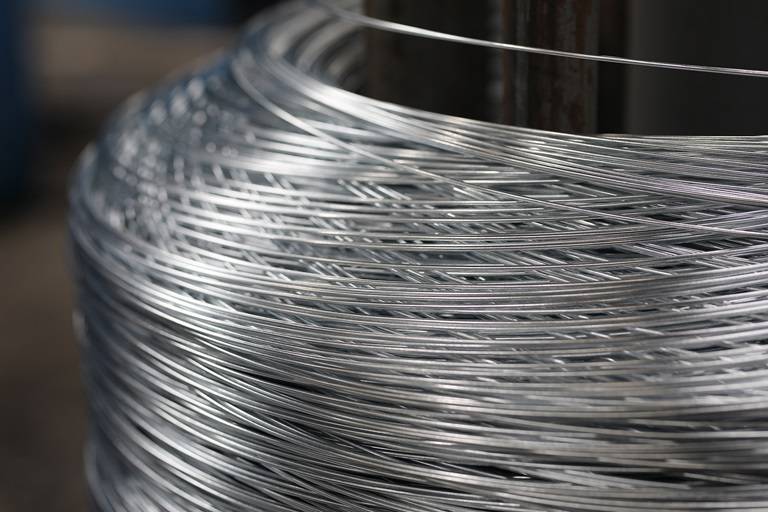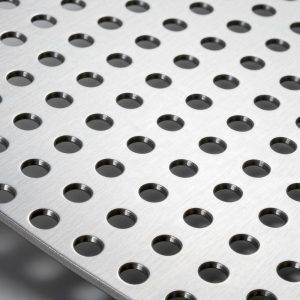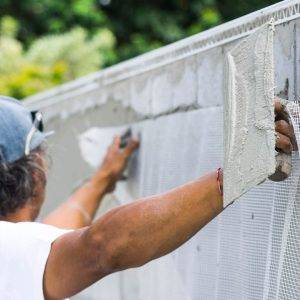Different applications have different requirements for steel wires. If the wrong type is chosen, the expected function cannot be achieved.
Tensile strength of low carbon steel wires
| Actual or nominal wire diameter | Application | ||||
|---|---|---|---|---|---|
| For general purpose | For post-coating and for welding | For nail | For general purpose and for wire fabrics | For welding steel wire fabrics and concrete reinforcement | |
| mm | N/mm² | N/mm² | N/mm² | N/mm² | N/mm² |
| 0.10 and over to and excl. 1.30 | - | - | / | - | / |
| 1.30 and over to and excl. 1.80 | - | - | 740 to 1270 | - | / |
| 1.80 | 590 to 1270 | 320 to 1270 | 740 to 1270 | 260 to 590 | / |
| 2.00 | 590 to 1270 | 320 to 1270 | 740 to 1270 | 260 to 590 | / |
| 2.30 | 590 to 1270 | 320 to 1270 | 740 to 1270 | 260 to 590 | / |
| 2.60 | 540 to 1130 | 320 to 1270 | 390 to 1130 | 260 to 590 | 540 min. |
| 2.90 | 540 to 1130 | 320 to 1270 | 390 to 1130 | 260 to 590 | 540 min. |
| 3.20 | 540 to 1130 | 320 to 1270 | 390 to 1130 | 260 to 590 | 540 min. |
| 3.50 | 440 to 1030 | 320 to 1270 | 590 to 1030 | 260 to 590 | 540 min. |
| 4.00 | 440 to 1030 | 320 to 1270 | 590 to 1030 | 260 to 590 | 540 min. |
| 4.50 | 440 to 1030 | 320 to 1270 | 590 to 1030 | 260 to 590 | 540 min. |
| 5.00 | 390 to 930 | 320 to 1270 | 590 to 1030 | 260 to 590 | 540 min. |
| 5.50 | 390 to 930 | 320 to 1270 | 590 to 1030 | 260 to 590 | 540 min. |
| 6.00 | 390 to 930 | 320 to 1270 | 490 to 880 | 260 to 590 | 540 min. |
| 6.50 | 390 to 930 | 320 to 1270 | 490 to 880 | 260 to 590 | 540 min. |
| 7.00 | 390 to 930 | 320 to 1270 | 490 to 880 | 260 to 590 | 540 min. |
| 7.50 | 390 to 930 | 320 to 1270 | 490 to 880 | 260 to 590 | 540 min. |
| Over 7.50 up to and incl.16.00 | 320 to 880 | 320 to 1270 | 490 to 880 | 260 to 590 | 540 min. |
| Over 16.00 up to and incl.18.00 | 320 to 880 | 320 to 1270 | 490 to 880 | 260 to 590 | 540 min. |
NOTE 1 As for the actual or nominal wire diameter not given in this table, the value of the nearest larger wire diameter in this table shall be applied. NOTE 2 As for the wire marked with bar (-) in this table, it indicates that the mechanical properties are not be specified. As for the wires marked with slush (/),there is no preseription herein since no wires in such range are produced.
The general and commonly used specifications can be obtained in a quick and economical way, whereas custom-made products are not the case.
Preferred wire diameter of plain wire (mm)
| 0.10 | 0.12 | 0.14 | 0.16 | 0.18 | 0.20 | 0.22 | 0.24 | 0.26 | 0.28 | 0.30 | 0.32 | 0.35 |
| 0.40 | 0.45 | 0.50 | 0.55 | 0.62 | 0.70 | 0.80 | 0.90 | 1.00 | 1.20 | 1.40 | 1.60 | 1.80 |
| 2.00 | 2.30 | 2.60 | 2.90 | 3.20 | 3.50 | 4.00 | 4.50 | 5.00 | 5.50 | 6.00 | 6.50 | 7.00 |
| 7.50 | 8.00 | 8.50 | 9.00 | 10.0 | 11.0 | 12.0 | 13.0 | 14.0 | 15.0 | 16.0 | 17.0 | 18.0 |
You should be aware of the tolerance of the metal wire in advance and use it as a basis for inspection.
Tolerances on wire diameter of plain wire
| Wire diameter | For general purpose, post- coating and for welding | For general purpose and for wire fabrics |
|---|---|---|
| 0.35 and under | ±0.01 | ±0.01 |
| Over 0.35up to and incl.0.80 | ±0.02 | ±0.02 |
| Over 0.80 up to and incl.2.00 | ±0.03 | ±0.04 |
| Over 2.00 up to and incl.2.90 | ±0.04 | ±0.06 |
| Over 2.90 up to and incl.3.20 | ±0.04 | ±0.06 |
| Over 3.20up to and incl,4.00 | 土0.05 | ±0.08 |
| Over 4.00 up to and incl.6.00 | 土0.05 | ±0.08 |
| Over 6.00 | ±0.06 | ±0.10 |





